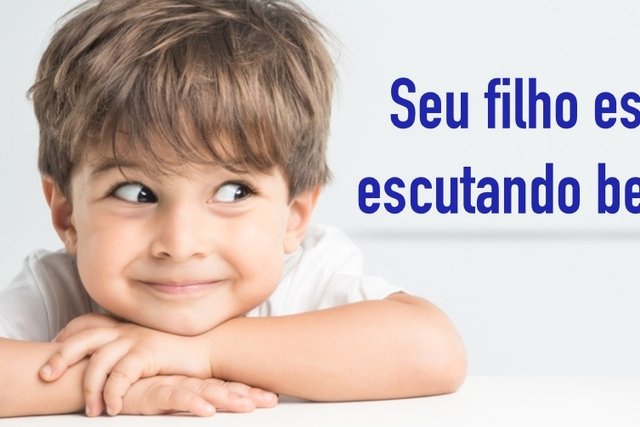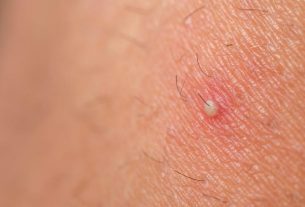It is important to identify hearing problems in the baby in the first 6 months of life, as the sooner the problem is diagnosed, the sooner treatment can begin and, in this way, avoid development problems, especially with the child’s speech and social skills. .
To identify if the baby is not listening correctly, parents, family members or kindergarten teachers should be aware of some warning signs, which include:
Up to 3 months of age
- Does not react to loud sounds, such as an object falling nearby or a truck passing in front of the house;
- Does not recognize his parents’ voice and, therefore, does not become calmer when his parents speak to him;
- Does not wake up when people talk loudly nearby, especially when it is silent in the room.
3 to 8 months old
- Don’t look towards the sounds, when you turn on the television, for example;
- He doesn’t make any kind of sound with his mouth;
- Do not use toys that make the most noise, such as rattles or toys with sounds;
- Does not change behavior or expression when saying ‘no’ or giving an order with the voice.
9 to 12 months of age
- Does not react when the baby’s name is said;
- Does not respond to music, dancing or trying to sing;
- Does not say simple words like ‘ma-ma’ or ‘da-da’;
- Does not recognize words for simple objects such as ‘shoe’ or ‘car’.
Generally, the baby’s ability to hear is assessed in the maternity ward with a deafness test, called an ear exam, which helps the doctor check the baby’s hearing and detect some degree of deafness early. See how the ear test is done.
However, a baby’s hearing may be perfect after birth, but decrease up to a few months after birth, due to ear injuries or infections such as chickenpox, mononucleosis or meningitis, for example. Therefore, parents should be aware of other signs that may indicate that their baby has hearing problems.
How not to harm your baby’s hearing
Although most cases of childhood deafness cannot be prevented, as they are caused by genetic changes, there are other cases, especially of decreased hearing after birth, that can be avoided. So some important tips include:
- Avoid inserting objects into the baby’s ear, even cotton swabs, as they can cause damage to the inside of the ear;
- Pay attention to signs of ear infection or flu, such as a foul smell in the ear, fever, runny nose or refusal to eat, for example;
- Avoid exposing the baby to very loud sounds, especially for a long time.
Furthermore, it is very important to give all the vaccines in the National Vaccination Program, to avoid the development of infections, such as chickenpox or meningitis, which can cause deafness.

Sign up for our newsletter and stay up to date with exclusive news
that can transform your routine!
Warning: Undefined array key "title" in /home/storelat/public_html/wp-content/plugins/link-whisper-premium/templates/frontend/related-posts.php on line 12
Warning: Undefined array key "title_tag" in /home/storelat/public_html/wp-content/plugins/link-whisper-premium/templates/frontend/related-posts.php on line 13




